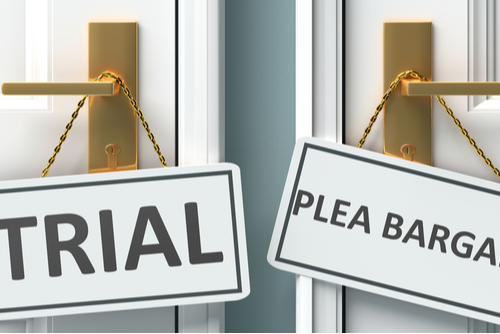Hi, my name is Givelle Lamano, and I’m a criminal defense attorney with Lamano Law Office. The goal of this video is to explain to you the difference with what is known as a plea bargain and going to jury trial. When you’re charged with a crime, your case is going to end up in one of two places. You either take a negotiated deal, which is also known as a plea bargain, or you exercise your constitutional right to fight your case, and go to trial. The main differences to know is with a plea bargain, it is a negotiated deal made by your criminal defense attorney and the district attorney. This is a deal that is set in stone.
After you come up with a deal, you then have something that’s called a sentencing hearing. Unless the judge disagrees with the deal, then you confirm the deal that is made, and you start the process of your sentencing. This is in comparison to what’s known as a jury trial. A jury trial is a very lengthy process that includes something that is called voir dire. Voir dire is essentially selecting a jury of your peers to determine whether or not you are guilty or not guilty. The difference with a plea bargain and a jury trail, is in a plea bargain, a deal is negotiated, whereas in a jury trial, 12 people determine whether or not you are guilty, and that is what’s done in the voir dire process, the selection of those jurors in your county.
In addition, when you go to jury trial, it could take a few days not just to select a jury, but also for your criminal defense attorney to make arguments on your behalf to present witnesses and to present evidence. It could be a roller coaster of emotions, and events, and information that comes out all highlighting that one event that happened that brought you there. I think in order for you to determine whether or not you want to go to jury trial, the first thing that you need to do is go through your police report with a fine-tooth comb to determine the value of your case and any viable defenses.
Please give us a call so that we can help you go over that police report, and we can examine what defenses you have to help fight your case. Thanks for listening.

